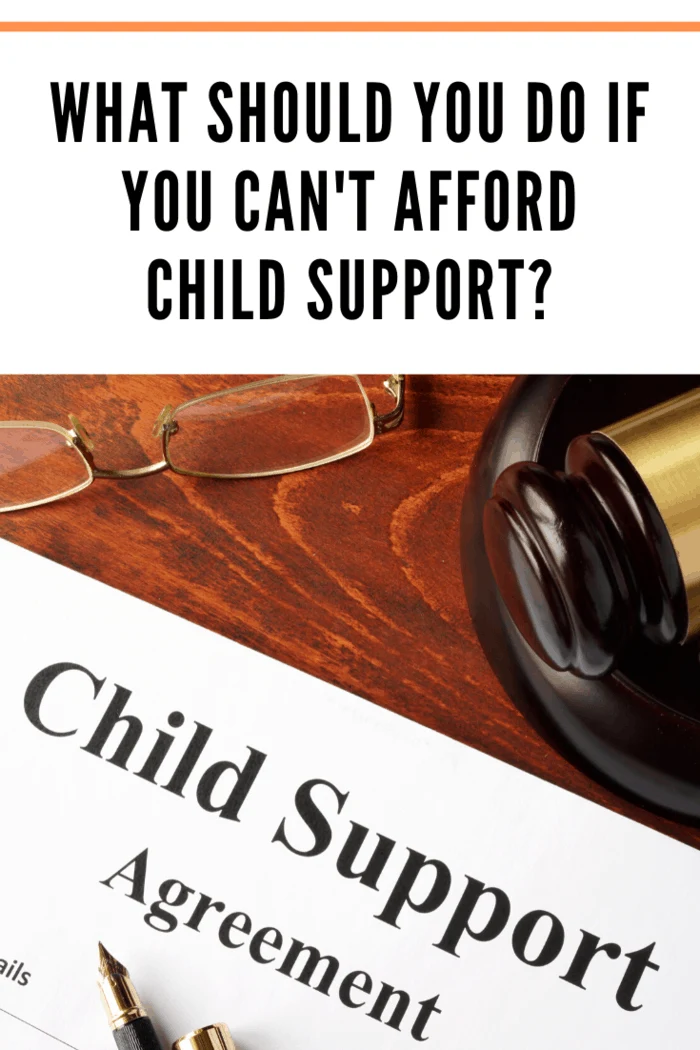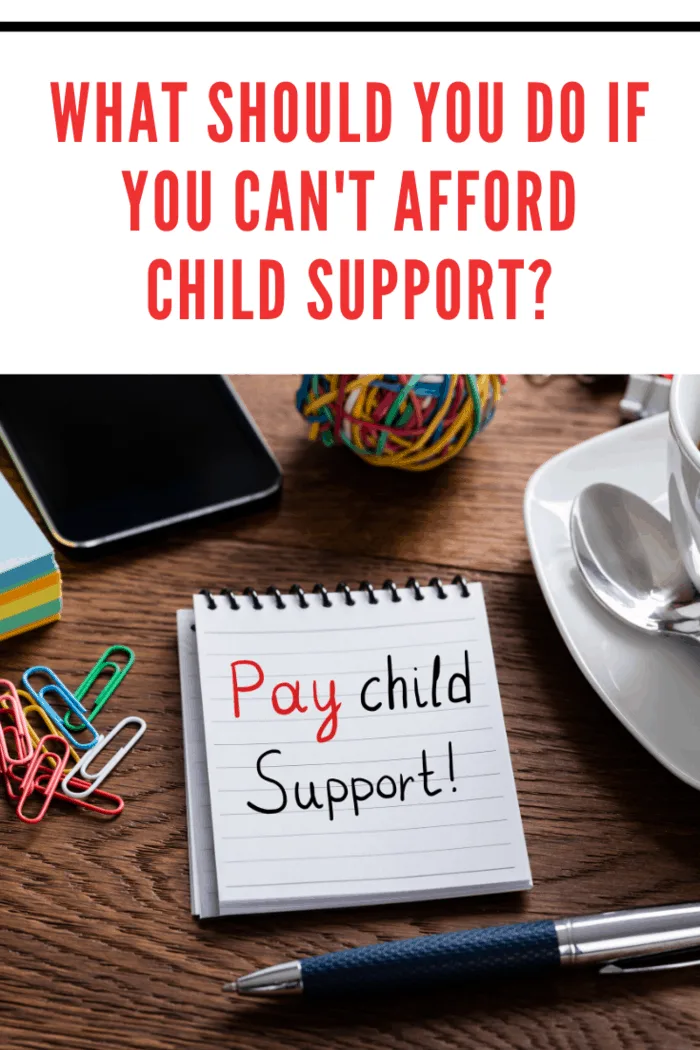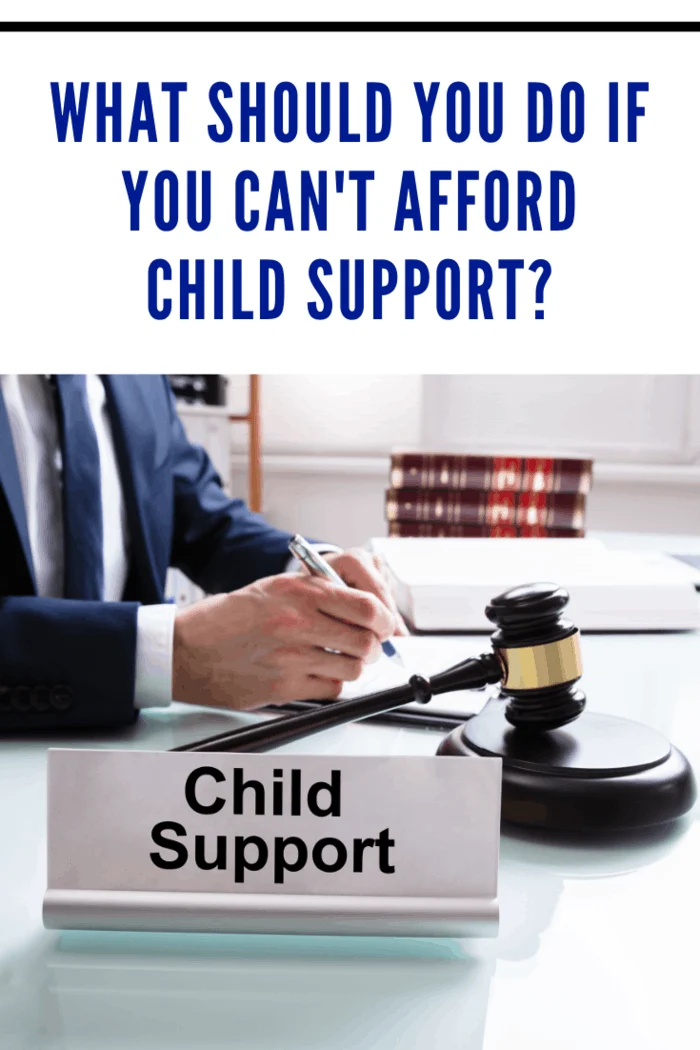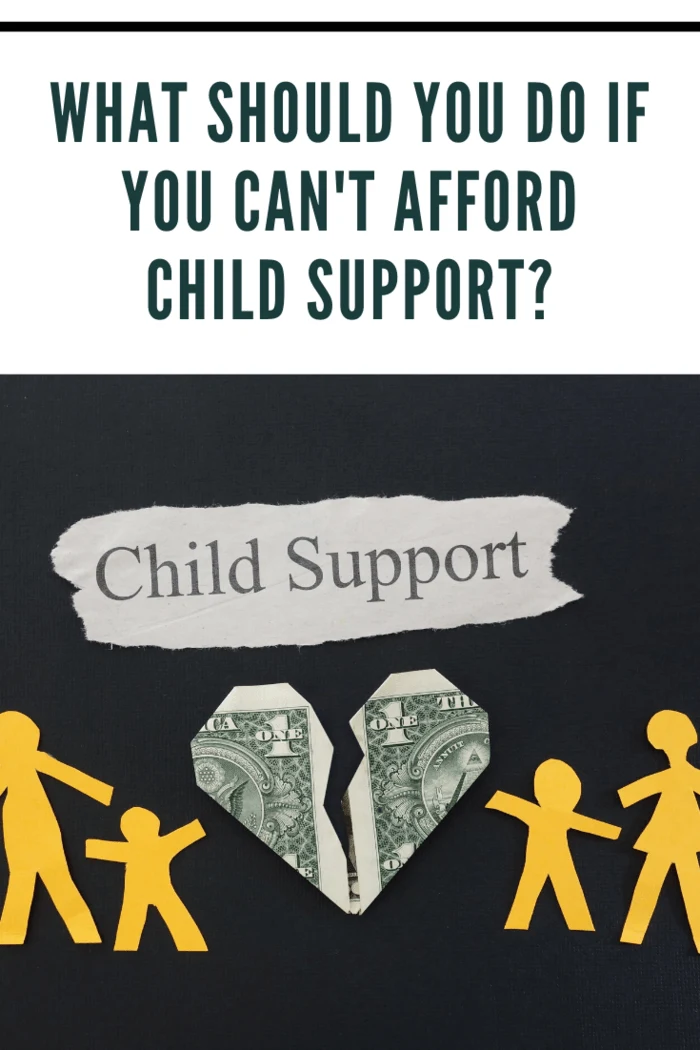As of January 2018, there are 13.6 million custodial single parents in the U.S., and around half ask for child support—either through the courts or informally (though primarily through the courts).
According to Very Well Family, in 2015, Americans owed $33.7 billion in child support. The average person owed $5,760 for the year but only paid $3,447 (around 60 percent). In other words, missing child support payments is relatively common.
However, just because you can’t afford child support doesn’t mean you don’t need to pay, especially if your ex has a court order.
So what do you do if you can’t afford those monthly payments? Keep reading to learn more.

What Should You Do if You Can’t Afford Child Support?
Can’t Afford Child Support? Talk to Your Ex First
As writer, I cannot provide legal advice, but I can offer some general guidance on this matter.
It is important to prioritize the needs and well-being of your child above all else. If you are unable to pay child support, it is essential that you communicate with your ex-partner and work together to find a solution that benefits your child. Ignoring the issue or avoiding communication can only make the situation worse.
Talking to your ex-partner about your financial situation and exploring alternative options, such as adjusting the amount of child support payments or seeking assistance from government programs or community resources, can help you come up with a plan that works for everyone involved.
Remember that being honest and transparent about your financial situation and showing a willingness to work towards a solution can go a long way in building trust and maintaining a positive relationship with your ex-partner, which ultimately benefits your child.
Child support funds go towards keeping your child healthy and happy. The courts take them seriously, and so do states.
Both of those facts mean it’s a good idea to talk about your finances rather than hide or skip payments.
Talking to your ex won’t change any legally binding agreements. However, it will relieve some of the tension if you are paying less than what you owe or you’re missing payments. It also gives them time to prepare for a lower child support payment and find a way to make up the income they won’t get from you that month.
If your inability to pay is the result of job loss, disability, or illness, then you can also talk to your ex about potentially modifying your child support agreement to reflect your new income.
However, you should only modify your child support payments if your loss of income is semi-permanent or permanent.

Don’t Skip Payments and Try to Skip Town
When you can’t afford child support, it’s tempting to skip the payment.
The problem with this is that when you have court-ordered child support, the government tracks your payments. Your state child support agency will consider your payment late the day after it’s due. You can get a grace period if it’s in your child support order, but you still need to pay unless you can contest the payment in court. Even then, you will make catch-up payments.
According to Live About, skipping payments and not responding to court notices can lead to:
- Withholding your wages
- Liens on your property
- Suspension of your driver’s license
- Seizure of your tax refund
Even the U.S. State Department can get involved and deny you a passport. And if all this happens and yous still don’t pay, you can be held in contempt of court (Cornell) and sent to jail.

How to Modify Your Child Support Agreement
The process of modifying a child support agreement can vary depending on the state or country where you live. However, in general, there are a few steps you can take to modify your child support agreement:
- Review your current agreement: Before seeking a modification, it’s important to review your existing child support agreement to understand the terms and conditions.
- Identify the reason for modification: You must have a valid reason to modify your child support agreement, such as a change in income or custody arrangements. Make sure you have a strong case for modification before proceeding.
- Contact your ex-partner: Reach out to your ex-partner and try to discuss the potential modification. You may be able to reach an agreement without going to court.
- File a modification request: If you are unable to reach an agreement, you will need to file a formal request with the court. You may need to provide documentation to support your case, such as proof of a change in income.
- Attend a hearing: If your ex-partner contests the modification, you may need to attend a hearing. Be prepared to present evidence to support your case.
- Receive a new agreement: If the court approves the modification, you will receive a new child support agreement that reflects the changes.
It’s important to note that the process of modifying a child support agreement can be complex and time-consuming. You may want to consider seeking the advice of a lawyer or a family law professional to guide you through the process.

When Will the State Allow for Child Support Modifications?
Whether you can’t afford child support or the custodial parent wants more money, it’s important to note that you can’t just change a child support agreement on an ad hoc basis.
In fact, there’s no automatic review process available. It’s up to the two parents involved to monitor child support payments and request changes. Your child support order will even stay intact when they are 18 unless you notify the state.
You must not only have a substantial change in circumstances but be able to prove it, too.
Some of the most commonly accepted reasons for modifications include:
Change in child’s medical care needs
Substantial increase/decrease in one or both parents’ income
Paying parents’ illness or disability
Change in custody or residence
Remember that you’ll need paperwork for any of these items, so be prepared to show it.
When Should I Ask for Help if I Can’t Afford Child Support?
If you’re going through a difficult financial period, you must immediately ask for help or a modification.
In most cases, modifications aren’t retroactive. They only change the agreement going forward.
So if you lose your job in January and then ask for a modification in March after missing two payments, then your modification won’t change the two missed payments.
Be Honest and Do Your Best to Make Payments
Child support can be crippling, and if you have both a court order and a second household to run, then you aren’t alone in that you can’t afford child support.
You can modify your child support agreement when catastrophic circumstances occur (e.g., job loss, illness, disability), and you don’t need the other parent to approve. However, you need to consult a lawyer early and be honest throughout the process.
Remember, child support isn’t punishment. It’s your contribution towards raising your biological children. So, states take it seriously, and attempting to hide has severe consequences.
Did you find my guide helpful? If you’re a newly divorced parent, you might also like my post on how to protect your privacy on dating apps.
